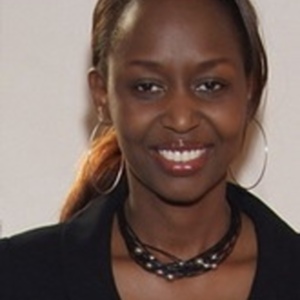Tomaselli, Cynthia (Student)
I read this quote in a Starbucks cafe two weeks before final exams. I was completely focused on the overwhelming cluster of due dates standing in between me and graduation. One of the deadlines that was rapidly approaching was my annotated bibliography for my Senior Seminar. I had chosen the Rwandan genocide, thinking I would have a large amount of information to create a decent paper. The genocide stemmed from Hutu extremists calling for the mass extermination of the Tutsi people after blaming the Rwandan Patriotic Front, a Tutsi rebel group, for the death of Rwandan President Juvenal Habyarimana. This ultimately led to the death of 800,000 Tutsis and moderate Hutus. I was indifferent to this issue as it was merely to be another ten page paper that I planned to procrastinate until the last minute. As I scoured the internet for a variety of sources regarding the mass genocide of nearly one million people, I came across a quote posted on the United to End Genocide website.
“Rwanda can be a paradise again, but it will take the love of the entire world…and that’s as it should be, for what happened in Rwanda happened to us all – humanity was wounded by the genocide.”
– Immaculée Ilibagiza, Rwandan author
Rwanda. A country that experienced a mass tragedy in the short span of 100 days was forgotten about. Kurt Cobain had just been found dead in his apartment and the FIFA World Cup were capturing the attention of the United States. America had turned it’s head to mass killing of almost a million people. This quote by Immaculée Ilibagiza shows me that we let down humanity on April 6th, 1994. We turned away from a problem that was “too big for us to face”. But in the face of injustice that this quote address, I was able to find hope. For this isn’t the end. Rwanda CAN become a paradise. But we must nurture it with empathetic arms. We must see the victims as our community rather than a series of statistics. We wounded humanity by our silence, but it is not too late to turn this mindset around. The first step at a better tomorrow rests in being aware. Our ignorance hurt Rwanda. We must make ourselves aware of these dilemmas in an effort to prevent them from happening again. By making ourselves aware we are able to place ourselves in the victims shoes. Like the quote says, “what happened in Rwanda happened to all of us. Humanity was wounded by genocide”. Humanity can also stop genocide through making ourselves aware. My humanitarian moment was in a Starbucks cafe where I discovered that the same wound that humanity received from genocide is the same wound that can be healed through love.
Subjects
History / Political Science / Rwandan Genocide / Genocide / Human Rights / Crimes Against Humanity /
Read More Humanities Moments